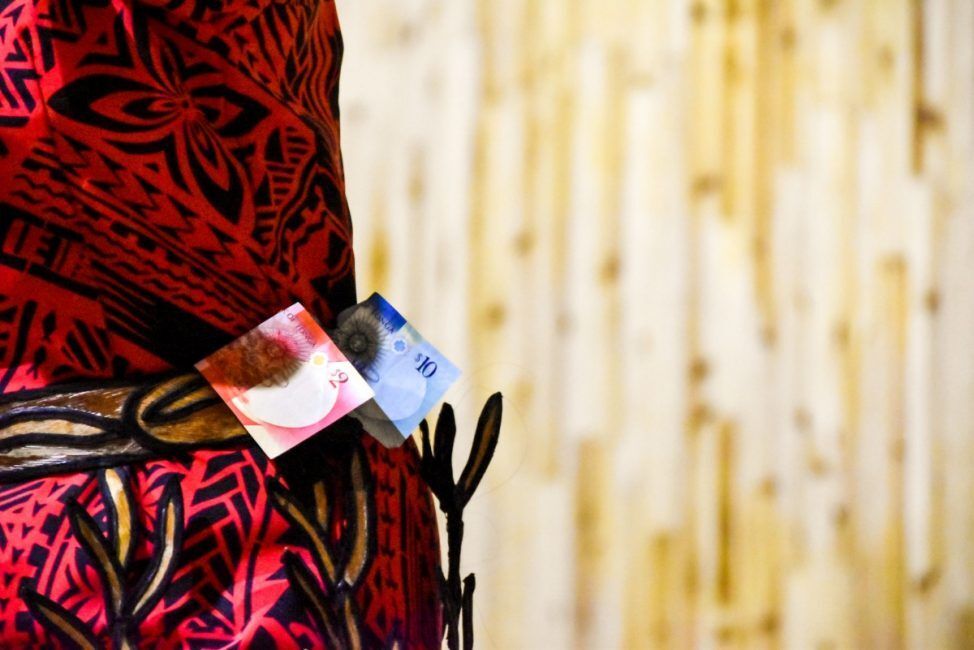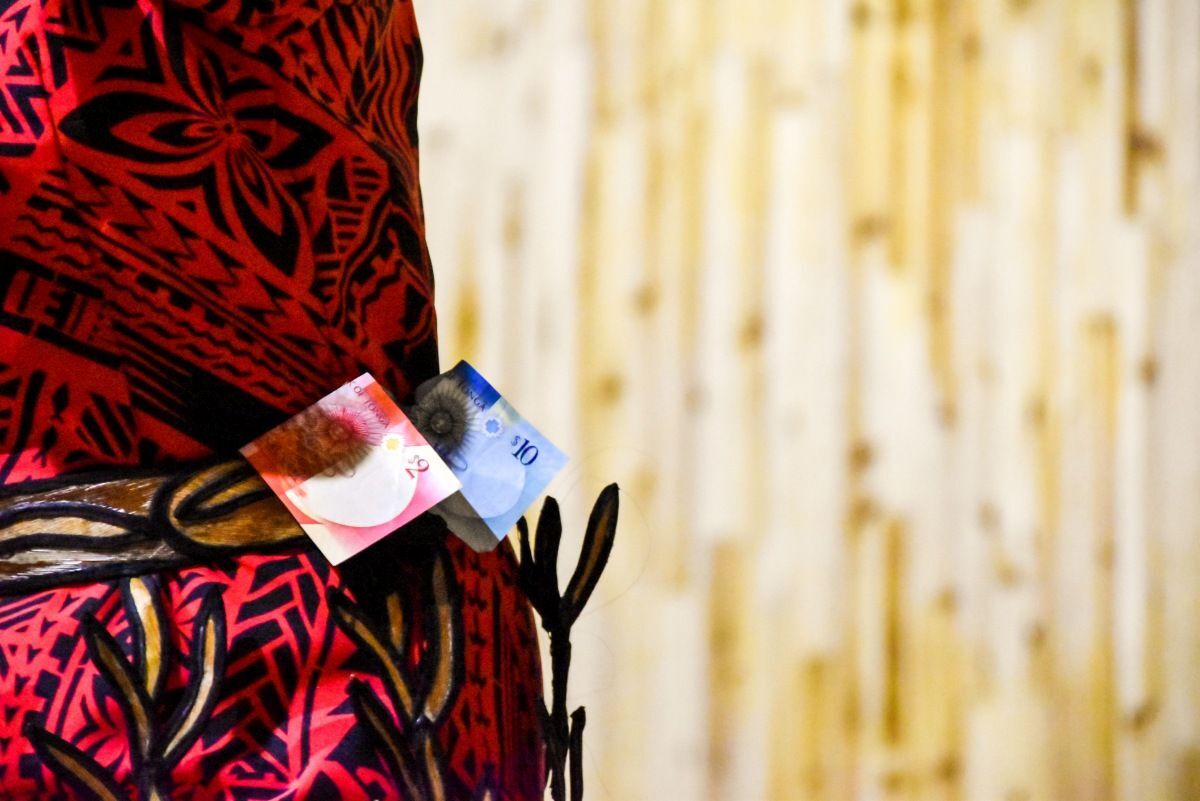Tonga Taxes: The Taxes and Fees Travellers Need to Know About
No one wants to hear about the extra fees or taxes they might have to pay for anywhere in the world. Luckily, Tonga’s taxes affecting tourists are only limited to two types of tax: Consumption Tax and Departure Tax. As the taxes are almost always included in the price, you’ll hardly notice that you’re paying the extra percentage. What’s more, tipping is not customary in Tonga, so there’s no requirement to factor that into your budget if you don’t want to. Regardless, it’s always good to keep savvy about what you are spending, which is why we’ve put together this quick Tonga tipping and tax guide for travellers.
For more money advice, see What is the Cost of Travelling in Tonga, as well as What is the Best Way to Pay in Tonga?
Is Tipping Customary in Tonga?
It is not customary nor expected for tourists to tip in Tonga. Should you want to reward good service, however, a tip will be well received. A situation where a voluntary donation is encouraged is during cultural dance performances – more on that in the section below!
On the other hand, there are taxes that you will have to pay during your holiday. More on that in the sections below…
Taxes on Goods and Services
CT Rate: 15% of the price of all goods and service.
A tax applied to all goods and services in Tonga is known as the Consumption Tax or “CT”. This tax will be applied to most things that you buy in Tonga, from food in restaurants to vehicle hire to any activities you pay for.
Almost all prices you will see in Tonga will include the CT unless stated otherwise. If you’re unsure, it’s always best to ask whether the price includes CT.
Since 2005, the CT rate in Tonga has been 15% of the total cost of the good or service.
Good/Services Exempt from CT
Some goods and services in Tonga are exempt from the Consumption Tax, including:
- medical, dental or nursing services
- prescription medicines
- education services
- financial services
- public transport services (not including tourism operators)
- lease of residential land
- goods not exceeding TOP$500 in value accompanying a person arriving by sea or air in Tonga
- an import of goods by a diplomatic or consular mission.
More information on Tonga’s Consumption Tax can be found on the Tonga Ministry of Revenue & Customs website.
Can You Get CT Refunded?
Visitors cannot claim a tax refund on the Consumption Tax.
Tonga Departure Tax
Rate: TOP$55 per international visitor
As of 2015, the Tonga Departure Tax became a flat rate of TOP$55 for each international visitor departing Tonga. The Tonga Departure Tax is included in flight tickets from Tonga, so there is no upfront fee to pay on departure. For this reason, many visitors will not notice this rate when booking a flight to and from Tonga… But now you know!
Note that infants under two years old who are not occupying a seat are exempt from the Tonga Departure Tax.
If you’re visiting by private sailing boat, on the other hand, you will have to pay this departure fee to the authorities. Learn more about the marine craft departure process in The Sailing Guide to Tonga: Tips for Yachting.
For more tips for departure, check out Leaving Tonga: Departure Tips & Checklist.
Tipping During Cultural Performances (Fakapale)
One of the rare occasions when tipping or a “voluntary donation” is encouraged in Tonga is during cultural performances, particularly during a tau’olunga which is a slow dance that a female would usually perform.
Cultural performances are held in resorts and restaurants across Tonga, consisting of dance performances along with a buffet of local and international cuisine. During the show, a young woman will perform a slow dance known as a tau’olunga. It is customary in Tonga for the audience to gift the dancer with a banknote by tucking it into part of her outfit while she is performing. This form of tipping or prizemoney is known as “fakapale“.
After the tau’olunga, the audience usually continues to offer fakapale to other dancers throughout the performance, either tucking it into their outfits or putting it on the floor in front of them. Therefore, if you want to participate, it’s best to arrive at a cultural show with plenty of $2 and $5 bills. How much you decide to donate is completely up to you.
Find out where to catch a show in the 10 Best Cultural Shows in Tonga.
5 Final Tips for Tipping and Paying Taxes in Tonga
- There is a universally applied tax to all goods and services in Tonga, which is often included in the stated price
- A price seems too good to be true? Ask if the CT is included
- Take plenty of $1 and $5 notes to a cultural show
- Be aware that travellers paying by credit card will likely receive a 4-5% fee – learn more about What is The Best Way to Pay in Tonga?
- Cash is king in Tonga!
For more tips like this, see the 20 Ways to Save Money When Travelling in Tonga.
More About Tipping, Taxes and Money in Tonga
That’s it for our guide to tipping in Tonga, as well as taxes in Tonga for travellers. For more about money and budget in Tonga, check out the following guides:
- How Much Spending Money Do You Need for Tonga?
- Can You Use Your Credit or Debit Card in Tonga?
- What is the Best Way to Pay in Tonga?
Finally, plan your budget for visiting Tonga with our Tonga Travel Budget: How Much Does a Trip to Tonga Cost?
Author
Robin (Lopini) C.
This article was reviewed and published by Robin, the co-founder of Tonga Pocket Guide. He has lived, worked and travelled across 16 different countries before settling in the South Pacific, so he knows a thing or two about planning the perfect trip in this corner of the world. Robin works and consults regularly with the Ministry of Tourism of Tonga. Robin is also the co-founder of several other South Pacific travel guides and is a regular host of webinars with the South Pacific Tourism Organisation.


